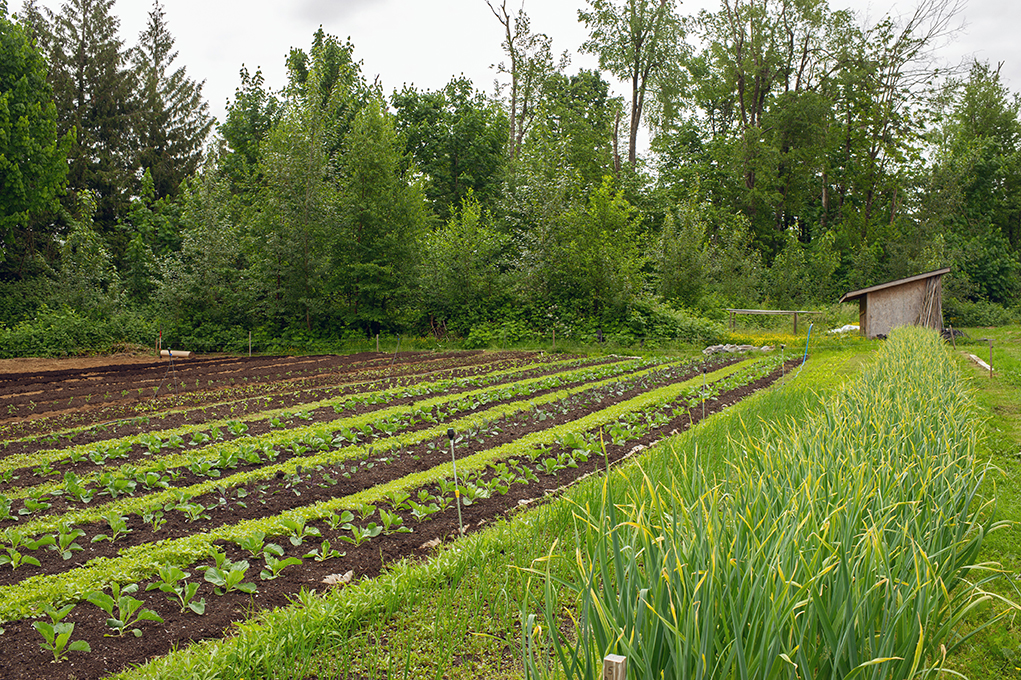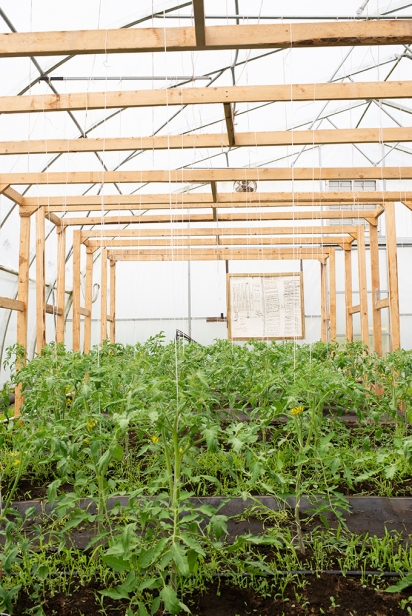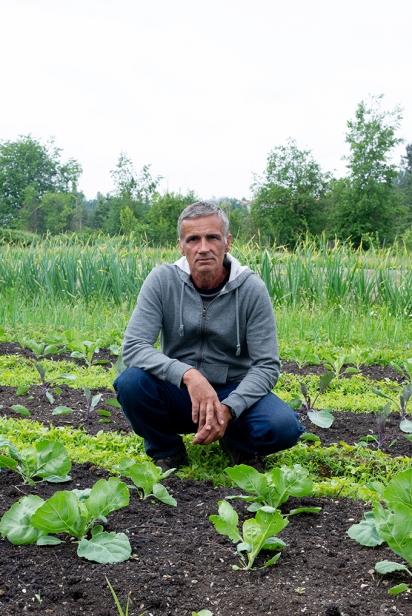Farming for a Future
If you’ve ever wandered through a farmer’s fields, you’ve probably been inspired by the bunches of spinach, radishes, onions and kale waiting to be harvested, chopped and sautéed into a delicious meal. Farms have a special way of inviting our creativity, sparking our senses and filling our bellies with nostalgic memories. But some farms uniquely support the surrounding community beyond growing your favourite fruits and vegetables. One such farm is Emma’s Acres, where they grow crops alongside possibility, acceptance and hope for the future.
Located in Mission, B.C., Emma’s Acres is an agricultural social enterprise run by the L.I.N.C. (Long-term Inmates Now in the Community) society — a charity founded to support victims of crime, individuals who face multiple barriers and people who've been incarcerated.
Sherry Edmunds-Flett, the co-founder and executive director at L.I.N.C., formed the charity with her late husband Glen Flett after one of their friends died by suicide. She explains that because their friend spent time in jail, he felt as though he wasn’t accepted by society.
“We wanted to start creating places for people to belong,” says Edmunds-Flett. “Things like talking circles or healing groups — we created a place to belong.”
While envisioning these places of belonging, Edmunds-Flett was passionate about the connection between agricultural practices — and the healing power farming manifests — and actively addressing barriers in our communities. She and Glen were inspired by the teachings of Michael Ableman, one of the first and most influential advocates of sustainable farming, which led them in 2012 to build Emma’s Acres (named after a woman Glen knew).
Edmunds-Flett says her organization believes that social justice is partly a result of food security and food justice, the latter which works to improve existing food systems, which many believe are unsustainable and privileged.
“Our members will always be known for what they are doing [in the community] — we aren’t going to hide who they are,” she says.
The members she’s referring to are inmates of the corrections system. Because inmates can partake in escorted temporary absences (ETAs) during their sentences, allowing them to work in their communities at participating charities, businesses or other organizations, Emma’s Acres can hire them as farmhands. The goal of these programs is to assist the reintegration of inmates into society by encouraging them to stick to a regular routine while instilling the value of safe and clean work environments. Edmunds- Flett believes that working at Emma’s Acres supports this goal.
Emma’s Acres gives inmates the opportunity for regularly scheduled work on a farm so they can develop transferable skills and work to become well-integrated and accepted members of society when they obtain parole.
Emma’s Acres gives inmates the opportunity for regularly scheduled work on a farm so they can develop transferable skills and work to become well integrated and accepted members of society when they obtain parole.
Edmunds-Flett remains inspired by her husband’s advice: “You are less likely to steal and rob in a community where you have a vested interest.”
Greg Crick is a case in point. For him, the support from this social enterprise was so transformative that when he went on parole, he was able to build a long-term career as a result of his escorted absences work. He’s now the farm’s manager.
Crick, a self-proclaimed “farmer who doesn’t eat vegetables,” began working at the farm in 2016.
“I was doing ETAs out of prison to start with, then when I was in a halfway house in New Westminster, I was coming down [to the farm] on the weekends. In December, I came down here full time.”
Although he doesn’t describe himself as a role model for inmates, there’s no denying that Crick still uses the skills developed during his ETAs. In fact, he believes they have facilitated some of his recent accomplishments. His ability to integrate successfully into society after nearly 24 years in prison speaks to the transformative impact regular, routine work — such as sowing seeds and harvesting crops — instills in inmates.
Crick sees this impact as one of the major benefits Emma’s Acres offers: the ability to get outside, implement a routine work schedule and learn the importance of hard work and staying out of trouble.
“No. 1, [farming] gets you out of prison, even if it is only for eight hours a day. I’d rather be out here working than doing nothing,” Crick explains, reflecting on how his experience working on Emma’s Acres aided in his parole. “It gets you one step closer to getting out.”
Edmunds-Flett says learning how to grow food, take care of crops and participate in a job that values food security is an incredibly powerful tool. Not only is Emma’s Acres an example of the transformative effect food-based ETAs have on restorative justice, but the farm works to reduce social stigmas associated with inmates as well as survivors and victims of crime.
In addition to the support Emma’s Acres provides to inmates, the farm also collects bread donations from a local bakery once a week and distributes them to community members who could not otherwise afford it. The farm also provides free produce to friends and family members of murder victims.
This depth of caring is visible on the farm itself. A “medicine garden” at the back of the property is named after a L.I.N.C. member who became one of serial killer Robert Pickton’s victims. With aromatics such as lavender, sage and rosemary nestled amongst wild blackberry bushes, the garden offers sanctuary and serves as a space of remembrance for the founders’ friend and the woman who was murdered by Pickton. The garden also represents other missing and murdered women.
“There are certain plants you plant up here, like tobacco, squash and beans. They are the three sisters for the medicine garden. Then the herbs that go in there are actual medicines,” Crick explains.
Beyond plant varieties, the traditional Indigenous agricultural practices that influence this garden provide inmates and visitors with a place to engage with the land and experience the medicine it provides, all while showing respect and gratitude for people they have lost to acts of crime.
The totem pole that presides over the garden to welcome workers and visitors is equally saturated with meaning. It’s a representation of the survivors and victims of crime. Each face carved into the wood represents someone who has been lost. Something even deeper than food lingers over this part of the property — the feeling of recognition and belonging that roots itself in the soil.
That’s important, because just like the Edmunds-Fletts' friend, many people who come from prison feel as if they don’t have a purpose in society. They are isolated, lack the skills to be successful and risk going back to prison. But Emma’s Acres encourages them to take what they learn on the farm and extend these skills into their everyday lives. At the same time, survivors and victims of crimes experience recognition of how valid their experiences are. On the farm, all of these people are heavily supported by the community, particularly through the many organizations that collaborate with L.I.N.C and Emma’s Acres, because they have found a way, through food, to facilitate transformations and give people a place to belong.
“This is what we tell people,” says Edmunds-Flett: “You have the chance to do better and to be better.”
Emma’s Acres
lincsociety.bc.ca/emmas-acres | 604.820.1015









